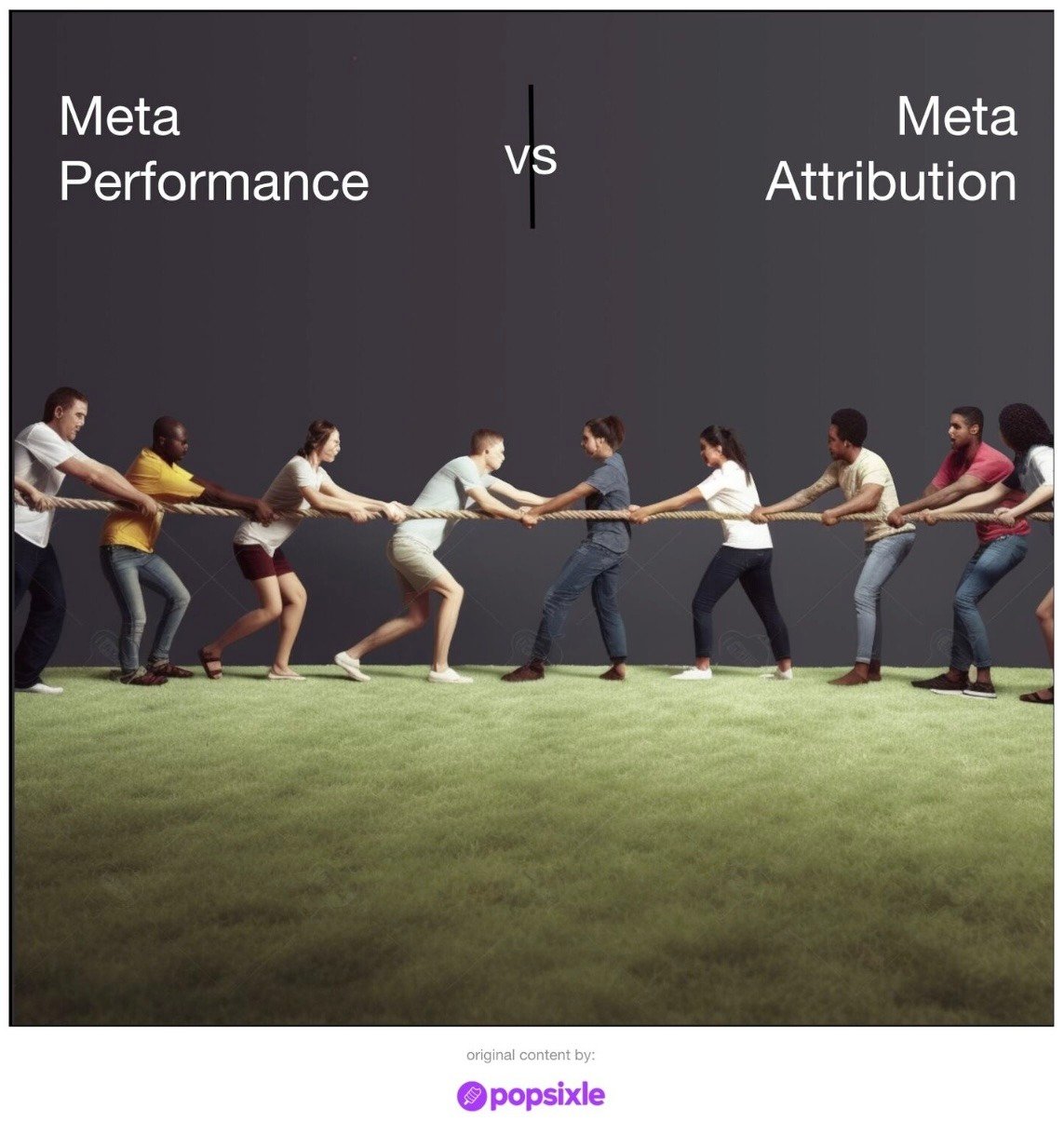Given the news this week about Meta releasing new attribution features, I wanted to share some thinking about Performance vs Attribution within Meta.
First off, Meta Performance and Meta Attribution are not the same thing.
Improving Meta Performance is about incrementally increasing the actual, real value that is being created. It means getting more competitive in the auction, reaching more of the right people, getting more site traffic, and getting more website revenue.
Improving Meta Attribution is about getting Meta to tell a more accurate story about what value was created, and of that value, what value can Meta take credit for.

Now lets imagine we were setting up data tracking for two different brands.
Brand A is focused on having the best possible auction performance; they don't trust Meta for attribution and they measure attribution using their own data or 3rd party tools.
Brand B is focused on having the most accurate and trustworthy attribution; they are focused on restoring trust in Meta's attributed conversions and revenue, even if it means some drop in auction performance.
Brand A would likely want a data set up that sends ALL THE DATA. The more the better. Even though it would cause over-attribution, it would increase the appearance of more conversions, lead to higher quality scores, increase their bid multiples, and therefor improve auction performance and competitiveness.
Brand B would likely want a data set up that is balanced. They'd want to filter out data that shouldn't get attributed to Meta ads. They might only send data with Facebook Click Ids. This would lower the visibility of conversions, lead to lower auction quality scores, and potentially hurt their auction performance.
So this all boils down to one question: Does the new Meta release lead to more actual purchases or more attributed purchases? Does the auction perform better? Or is it just trying to make attribution more accurate? Or both?
Meta claims it does both. But Meta has been trying for years to build products with one single goal: to show the value of Meta ads. (7 years ago it was brand lift studies. 2 years ago it was channel lift studies. Today its multi-touch attribution.) Time will tell if this new release is good for Meta advertisers, or simply good for Meta and their attribution partners.